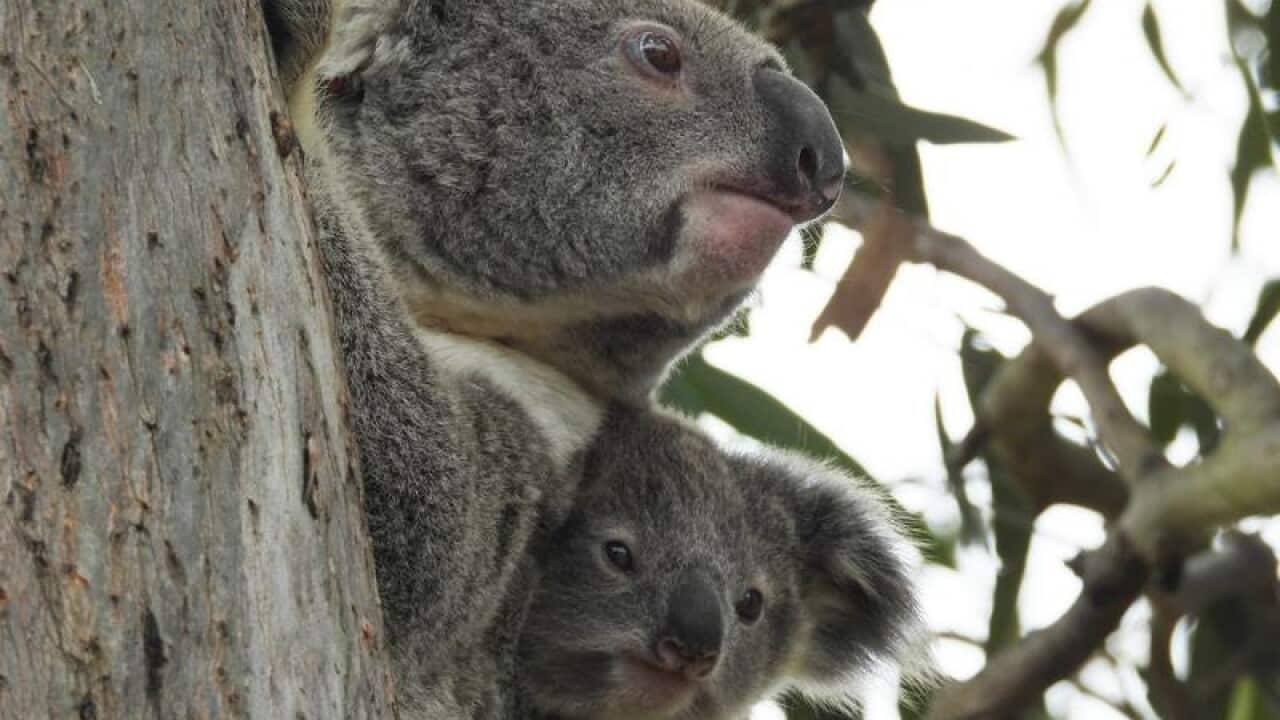The federal government says it will spend another $50 million over four years aimed at helping to protect Australia's dwindling koala population.
The money will underpin a national koala recovery plan, promised after the devastating 2020 bushfires.
Prime Minister Scott Morrison says the $50 million in funding will go to initiatives including restoring habitat, monitoring populations and boosting research into koala health.
"Koalas are one of Australia's most-loved and best-recognised icons, both here at home and across the world, and we are committed to protecting them for generations to come," he told ABC News. Minister for the Environment Sussan Ley said the $50 million package would also provide significant flow-on benefits for other native species.
Minister for the Environment Sussan Ley said the $50 million package would also provide significant flow-on benefits for other native species.

Veterinarians work on Jeremy, a young koala recovering from injuries that was rescued from the Victorian bushfires near Mallacoota, on January 23, 2020. Source: AAP
“Importantly, the extra funding will build on work already happening across the koala range to restore and connect important habitat patches, control feral animal and plant species, and improve existing habitat,” Minister Ley said.
“Current funding is already supporting eight strategic habitat restoration projects that target thousands of hectares in significant koala areas in Eastern Australia."
Koala populations in NSW have declined by between 33 and 61 per cent since 2001 and at least 6400 were killed in the Black Summer bushfires.
More must be done, organisations say
WWF Australia, the International Fund for Animal Welfare (IFAW) and Humane Society International have long been pushing for the change, saying the iconic species is in desperate need of greater protection if it is to survive.
Queensland's koala population has dropped by at least 50 per cent since 2001 due to deforestation, drought and bushfires.
Last June a federal panel of threatened species experts recommended the marsupial's status be upgraded from vulnerable to endangered in NSW, Queensland and the ACT.
In 2020, an NSW parliamentary inquiry found koalas would likely become extinct before 2050 without urgent government intervention to prevent habitat loss.
The IFAW says it welcomes any funding towards the protection and recovery of koalas but wants more done to reverse the factors that have triggered the marsupial's decline.
"They're on the road to extinction with population numbers dwindling and their habitat disappearing but pouring money into the problem isn't going to solve anything unless we address the root cause of their decline which is habitat loss and climate change," said campaign manager Josey Sharrad.
"On one hand the government is investing millions in habitat restoration but on the other hand continues to allow land clearing and development that threatens core koala habitat.
"You can't put a price tag on the recovery of an invaluable national treasure."
The WWF says it's pleased by the announcement but would welcome further steps to protect the vulnerable animal.
Tanya Pritchard, Landscape Restoration Project Manager at WWF-Australia, said the funding should be accompanied by a commitment to double the number of east coast koalas by 2050.
“We can’t just count koala numbers as they continue to decline. A baseline survey of koalas is important, but it should be used to guide efforts to turn around the sad decline of this Aussie icon,” she said.
She also said the funding must be followed by a comprehensive national recovery plan backed by state governments that addresses deforestation and climate change.
“This money is much needed, but without stronger laws and major landholder incentives to protect koala habitat their forest homes will continue to be bulldozed and logged,” she said.
“Koalas are the face of our forests, yet we’re still clearing the habitat of many priority populations.”
Ms Pritchard said the federal government could increase protections and give hope to koalas by listing them as an endangered species on Australia’s east coast.
Leader of the Opposition, Anthony Albanese accused the government of being "all announcement, no delivery."
"They haven't even delivered on the previous commitments they've made with regard to the Great Barrier Reef. And we see it again today with koalas," Mr Albanese said.
"We all think koalas are cuddly. And we all want to save them. But guess what, you need to take action on climate change if you're going to save koalas."











